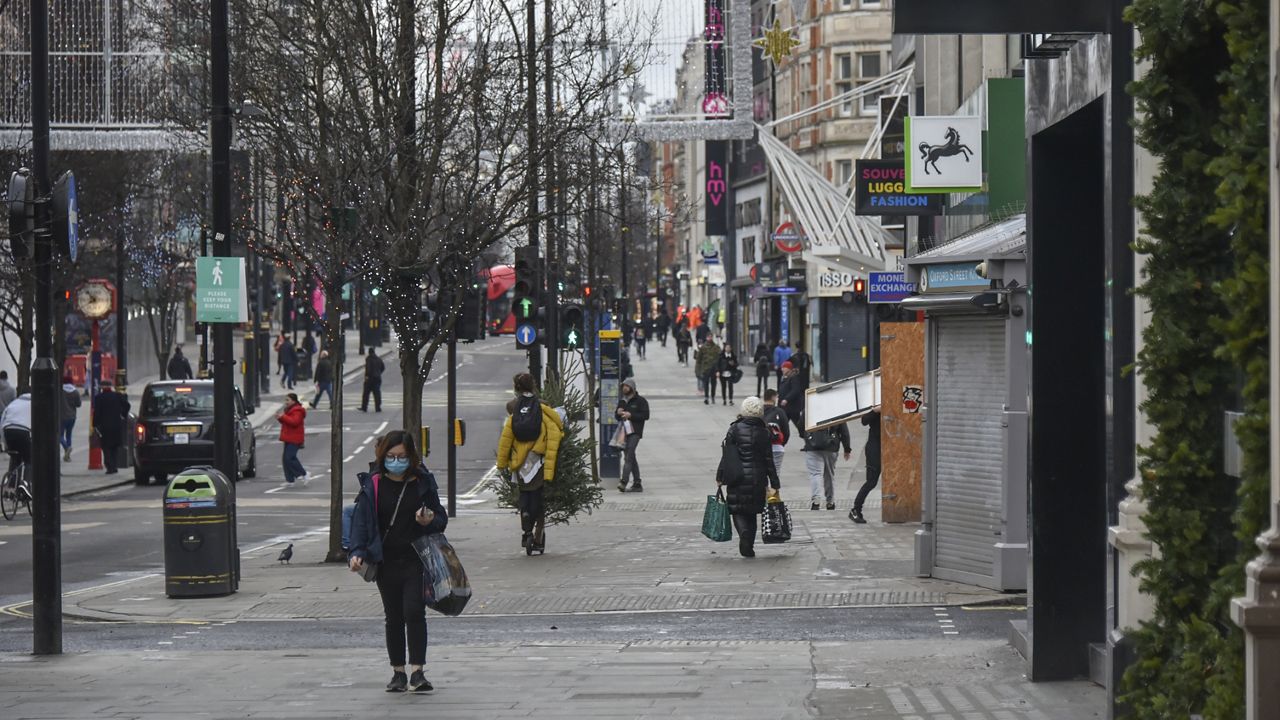A new variant of COVID-19 that is believed to be more contagious has been sweeping through London and southeast England, prompting a new wave of travel restrictions and lockdown procedures in the United Kingdom.
On Tuesday, the Centers for Disease Control and Prevention said that while the strain has not yet been discovered in the United States, it could already be circulating domestically unnoticed.
“Ongoing travel between the United Kingdom and the United States, as well as the high prevalence of this variant among current UK infections, increase the likelihood of importation,” the CDC said in a statement. “Given the small fraction of US infections that have been sequenced, the variant could already be in the United States without having been detected.”
The statement from the CDC noted that "viruses have only been sequenced from about 51,000" of the COVID-19 cases in the US.
The CDC's statement is in line with what Dr. Anthony Fauci told ABC's "Good Morning America" on Tuesday, that it's "certainly possible" the strain is already in the United States.
“When you have this amount of spread within a place like the UK, you really need to assume that it’s here already," Fauci said. "It certainly is not the dominant strain but I would certainly not be surprised at all if it is already here."
Over the weekend, Prime Minister Boris Johnson imposed strict lockdown measures in London and neighboring areas amid mounting concerns over the new strain. He scrapped a planned relaxation of rules over Christmastime for millions of people and banned indoor mixing of households. Only essential travel will be permitted.
The new strain accounts for 60% of recent infections in London, according to the CDC.
The new strain, which the CDC says "has been predicted to potentially be more rapidly transmissible" than other strains of COVID-19, is being referred to as "SARS-CoV-2 VUI 202012/01" – or "the first variant under investigation from 2020, December."
The CDC wrote that "we do not know" why the variant has emerged, and health authorities are urging caution, rather than panic, in the face of the new strain.
Dr. Deborah Birx, the Coronavirus Response Coordinator for the White House Coronavirus Task Force, told Spectrum News on Tuesday that COVID-19 is "constantly mutating," but precautions such as wearing a mask and social distancing should prevent the spread of the variant.
"The good news is all the precautions that we're taking we want people to take for the holidays, the masking the physical distancing, the not gathering across households and not bringing in friends and family will prevent both a highly transmissible virus as well as all of our current viruses from being transmitted," Dr. Birx said.
BioNTech is confident that its coronavirus vaccine (developed with US pharmaceutical giant Pfizer), which has been authorized for use in more than 45 countries including the US and the UK, works against the variant, but further studies are needed to be completely sure, its chief executive said Tuesday.
“We don’t know at the moment if our vaccine is also able to provide protection against this new variant,” CEO Ugur Sahin said at a news conference. “But scientifically, it is highly likely that the immune response by this vaccine also can deal with the new virus variants.”
Sahin added that should the vaccine need to be adjusted to combat the new variant, it could be done in about 6 weeks.
On Monday, New York Gov. Andrew Cuomo announced three airlines that provide service from the UK to New York City will test travelers arriving from the UK for the new strain.
"I'm only a governor, but I will do anything I can to protect the people of the state of New York," Cuomo said.
Britain is witnessing an alarming rise in infections, with a record 36,800 reported on Tuesday, and is facing deep uncertainty over its final exit from the European Union in less than two weeks. Despite the looming deadline, the country has yet to work out its post-Brexit trade arrangements with the EU.
The virus is blamed for 1.7 million deaths worldwide, including more than 68,000 in Britain, the second-highest death toll in Europe, behind Italy’s 69,000.
The Associated Press contributed to this update.



